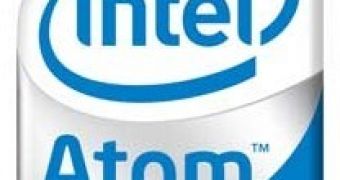Despite the fact that Intel's Atom processor is generating an increasing amount of interest on behalf of many manufacturers of computer systems, the worldwide leading processor maker doesn't see the Atom replacing its Celeron CPUs. At least not in the near future. "At this point in time, we do not see [Intel Atom] replacing Celeron," said Paul Otellini, chief executive officer of Intel Corp.
As most of you already know by now, the Intel Atom processors are responsible for powering the already successful Eee PC and its direct competitors, Wind and Aspire One. Most systems manufactures prefer to go for them because they can provide better performance compared with the Celeron CPUs. This makes them ideal for low-cost netbooks and nettops and, according to the Santa Clara-based chip maker, this is exactly what the Atoms were designed for.
"If you look at the products that are being built, the netbook products that are being built around Atom, they are all lower priced, lower featured, smaller screen sized notebooks aimed at first-time buyers or the second, third or fourth machine in a household. I don't see it cannibalizing, at least in terms of current sales out, and I think we really have hit on a new product category here," Mr. Otellini explained.
On the other hand, the Celerons have been specifically built to power entry-level and low-performance mainstream systems, which are aimed at customers without many requirements or who have to made do with a low budget. However, after Intel rolled out the Core 2 chips, this job was left in the "hands" of the Pentium processors, while prices for the Celerons were lowered until they reached the $34-$54 range. At this moment, some of the Atom chips for netboks and nettops are available for prices similar to those of the Celerons.
"We're still sorting out the brand activity in our mainstream notebooks. It is clearly Centrino and Core is where the thrust is going to be, and we're trying to? We will sort out and ultimately talk about where Pentium-based notebooks and Celeron-based notebooks live as these categories sort themselves out. But I think it's premature to say [anything], except that we don't see any cannibalization," Mr. Otellini added.

 14 DAY TRIAL //
14 DAY TRIAL //